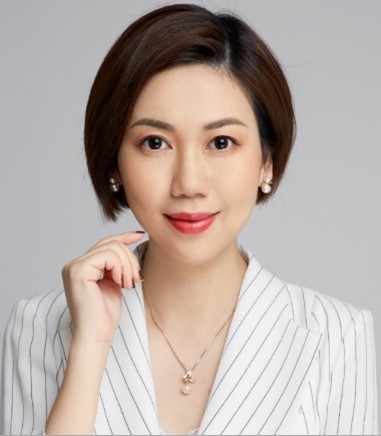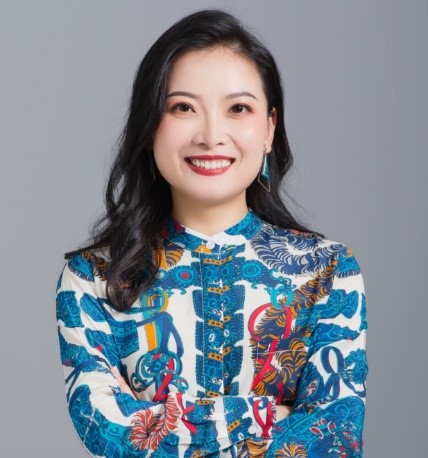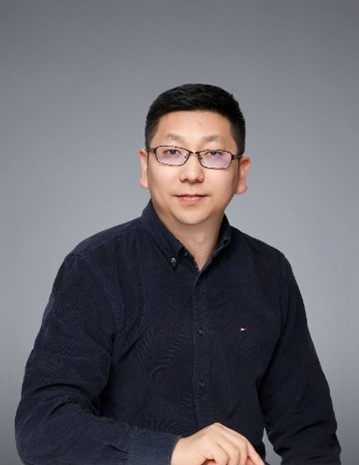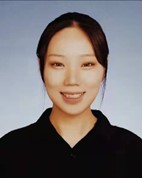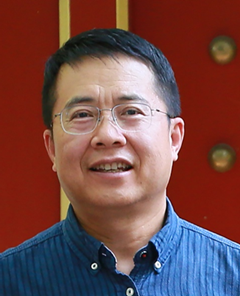25 April 2025, 9:30am-5.00pm
Teacher Training Day: Sharing Good Practices in Teaching Chinese Language and Cultures in the AI Era
We are delighted to be co-organising another hybrid (online or in-person) training day with Online Confucius Institute at the Open University for teachers of Chinese as a Foreign Language, as well as teachers of other languages.
Venue:
Seminar Room 10, Bowland North, Lancaster University and online
Language:
English and Chinese
Theme
Although the theme of this one-day event is Teaching Chinese Language and Cultures in the AI Era, teachers of other languages are welcome to attend the day as the shared approaches are applicable to language teaching in general.
Program and registration
Registration for the training day is now open and is free to attend.
Lunch and refreshments will be provided for those at the venue.
Program and registration accordion
- 09.30-09.50am: In person attendees arrive, register, get refreshments and are seated for 09.50am.
- 09.40-09.50am: Event opens to online registrants.
- 09.50-10.00am: Welcome
- 10.00-10.45am (in English): Innovative Approach to Teaching Chinese Culture through the Integration of Cultural MOOCs and AI Technologies with Dr LUO Rong and Dr LI Wenjing.
This presentation will introduce MOOC-based blended teaching approaches at Chinese universities to enhance the efficiency and quality of teaching Chinese culture to Chinese students and international students. The cultural MOOC The Breeze from the East was developed by our teaching group, consisting of 12 chapters covering a broad spectrum of topics in both traditional and contemporary Chinese culture. The presentation will also highlight ongoing efforts to integrate AI technologies into teaching practices in recent 1-2 years. These include using AI to intelligently segment and recommend teaching resources, design test questions, and evaluate students' learning outcomes. By combining the strengths of MOOCs and AI, this innovative approach seeks to create an upgraded, dynamic and effective model for teaching Chinese culture in the digital era.
- 10.45-11.30am (in Chinese): Practical Exploration of AI Agents in the Field of International Chinese Education with Mr XIE Junjie.
This presentation will focus on the application of Artificial Intelligence Agents (AI Agents) in the field of international Chinese education and explore how to improve teaching efficiency and quality through technological innovation. It explores how the AI question-generating system based on large language models can achieve intelligent grading, quickly generate a vast number of test questions and simultaneously provide scoring standards, so as to cope with time-consuming traditional test design and heavy reliance on manpower. It also introduces how the intelligent scoring Agents can ensure the objectivity and accuracy of evaluations through multi-dimensional data analysis. The speech will combine the practice of the TaoLi AI product of the "Taoli Chinese" team to analyse the technical architecture and ethical challenges of AI Agents in educational scenarios, such as how to balance automation and teachers' dominance and ensure the originality of test design. It will look forward to the future potential of AI Agents in Chinese teaching and research, emphasizing the collaborative evolution of "teaching" and "learning" empowered by technology.
-
11.30am-12.15pm (in English): Combination Punch and Differentiation Strategy: How Chinese Language Teachers Address Opportunities and Challenges in the AI Era with CHEN Ye.
This lecture will share the speaker’s practical experience in using over a dozen AI language teaching tools to enhance the motivation and Chinese proficiency of GCSE, A-Level, and HSK students. It will also introduce specific methods and resource-sharing on how to leverage generative AI tools like Deepseek and ChatGPT to assist in lesson preparation, create teaching materials, and provide feedback on corrections. While AI tools excel in personalized learning, their limitations in emotional interaction highlight the growing importance of teachers’ empathy skills in the future. The speaker will further explore how to optimize language and intercultural communication teaching through empathy theory, reinforcing the unique value of teachers to meet the new challenges posed by the AI era to the competency framework of language educators.
- 12.15-1.15pm: Lunch
-
1.15-2.00pm (in English): Foreign Language Speaking Anxiety Online with Dr Zsuzsanna BÁRKÁNYI.
Have you ever wondered why your students hesitate to speak in the classroom? Why nobody responds on a forum? Why they avoid interacting with an avatar, even though they enjoy playing video games? This talk explores the psychology behind foreign language speaking anxiety, practical strategies to build confidence, and ways to make virtual interactions less stressful and more engaging.
-
2.00-2.45pm (in English): Bring Vitality to Language Teaching with Self-made AI Bots with Professor XU Xin.
In today’s era when artificial intelligence is developing rapidly, it has become a new topic for all teachers to integrate the application of AI with designing teaching contents, providing teaching support and analysing teaching effects. In my speech, I will demonstrate through several cases how teachers with self-created AI bots improve their work efficiency and inject innovative vitality into Chinese teaching and HSK training. This demonstration is the testimony that AI is not out of reach for ordinary teachers. As long as one has enthusiasm and keeps learning, anyone can become an expert of using AI in education.
- 2.45-3.30pm (in English): Navigating AI in Foreign Language Teaching: Balancing Innovation and Integrity in Assessment with Dr KAN Qian.
This talk will explore how assessment needs to change as generative artificial intelligence becomes ever more prominent across the sector. The talk’s main focus is resolving the tension between preparing students for a world pervaded by AI whilst ensuring the integrity and security of assessment, and on the skills needed to navigate the generative AI landscape, exploring topics such as critical evaluation, using generative AI ethically and responsibly, and avoiding plagiarism when using such tools. It will also give a few examples of authentic and innovative assessment.
- 3.30-3.45pm: Break
- 3.45-4.25pm: Lightning talks or discussions
Including:
- MA Hongfang, an English teacher at Rendafuzhong, the High School affiliated with Renmin University - "Cultural Connotation of Chinese Colors".
- TANG Yuen Yuen, Galway University – ‘The Application of AI in Cultural Education’.
- TANG Yuqi, University of Wales, Trinity St David’s “Integrating AI in Survival Chinese: Enhancing Practical Communication and Cultural Readiness”.
- Dr YU Gu, Durham University, “From Description to Image: Using ChatGPT to Support Visual Literacy in the Chinese Language Classroom”for (A2-B2 level students).
- Dr Amily Wang GUÉNIER, Lancaster University, "人工智能驱动的翻译:研究生译后编辑中英翻译教学策略" (Translation Driven by Artificial Intelligence: Teaching Strategies for Post-editing in Chinese-English Translation for Graduate Students).
- 4.25-4.45pm: Conclude
Registration has now closed for the training day.
Keynote speakers
Dr LUO Rong
Associate Professor at the School of International Studies, Zhejiang University
Dr LI Wenjing
Associate Professor at the College of International Education, Hangzhou Normal University
Mr XIE Junjie
General Manager of Taoli Chinese
CHEN Ye
Formerly dispatched Mandarin Teacher at the Confucius Institute of Peking University and UCL
Professor XU Xin
Associate Professor at Beijing Foreign Studies University
Dr Zsuzsanna BÁRKÁNYI
Senior Lecturer in Spanish, The Open University
Dr KAN Qian
Senior Lecturer in Chinese, The Open University
Travel information
The conference will take place at Lancaster University.
Travel information accordion
The university’s travel page provides detailed instructions on how to get here by car, rail, bus, air, and bicycle.
There are two options for campus accommodation, please see the links below.
- On-campus bed and breakfast accommodation (guest rooms on campus)
- Lancaster House Hotel (four-star hotel, located at the edge of campus)
If you prefer staying in Lancaster (town), there are several options, which you can easily find on booking websites.
How to contact us
Please email: ci@lancaster.ac.uk


